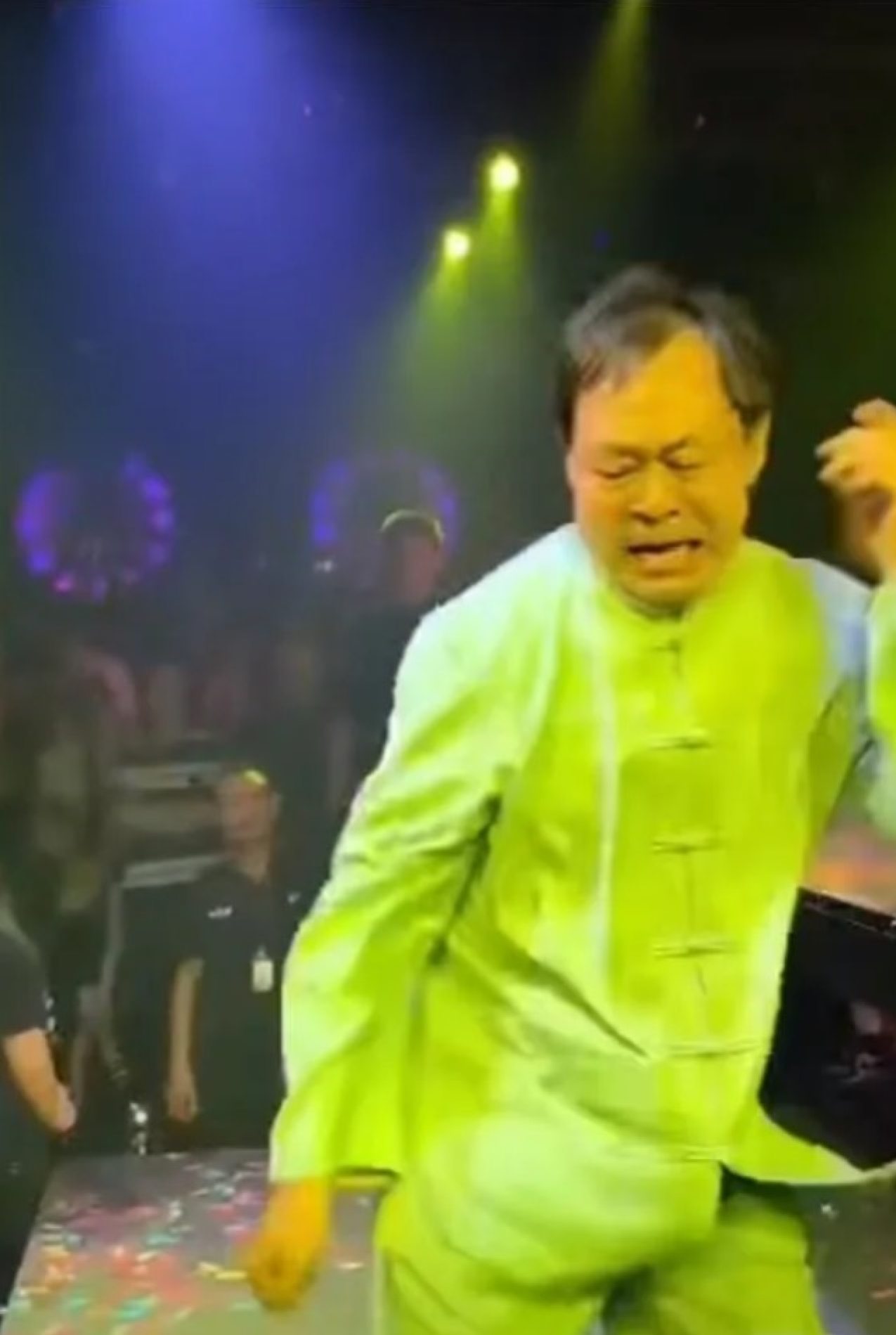A disgraced kung fu master in China has made a comeback in nightclubs, performing his infamous self-created martial arts moves.
Ma Baoguo, 72, has been seen by online observers who said he had transformed himself into a “godfather of nightclubs”, appearing at venues in Shanghai, Shenzhen, and other cities across the country.
From Henan province in central China, the birthplace of Chinese kung fu, Ma claims to be a tai chi master who created his own martial arts school and philosophy.
Do you have questions about the biggest topics and trends from around the world? Get the answers with SCMP Knowledge, our new platform of curated content with explainers, FAQs, analyses and infographics brought to you by our award-winning team.
In the nightclubs, Ma wears white attire and performs his signature moves, the Lightning Five Whips, swinging his arms to the music, twisting and bouncing, and ends with a bow to the audience.
He performs on stage with women assistants.
Each show lasts more than 30 minutes and commands a fee ranging from 100,000 to 200,000 yuan (US$28,000) per show, according to Tencent News.

Ma turned to live-streaming on short video platforms last year to sell clothes. He claims his team can earn 420,000 yuan (US$58,000) for each live-stream.
Online sources show that Ma once ran a martial arts school in the UK and hired an MMA retired fighter to stage fake matches, highlighting his supposed kung fu skills.
In May 2020, the self-proclaimed kung fu master became a laughing stock after he was knocked down three times in 30 seconds in one bout.
Internet users in China have created videos inserting Ma into famous action films or altering images to cast him in films such as The Godfather, where he replaced the lead character played by legendary Hollywood actor Marlon Brando.
On Bilibili, a YouTube-like video sharing platform, spoof videos of Ma have attracted about 150 million views.
Later, Ma wrote on Weibo: “The information online is chaotic. I hope everyone can discern things clearly. I have returned to a peaceful life, away from the disputes of the martial arts world.”

In November 2020, China’s official media criticised Ma as a “swindler”, calling him a “fake kung fu master”.
Weibo disbanded his fan group on the platform.
Ma then stopped posting content online and gradually faded from public view.
However, his return in a different guise has sparked much discussion on mainland social media.
“It seems Ma has grasped the secret to gaining traffic, being an object of ridicule is one way to stay famous,” one online observer wrote on Xiaohongshu.
“This is ridiculous. How can someone who tarnishes martial arts reappear and make big money?” said another.
Another observer took a different view: “He has not broken any laws. He earns money with his own skills and brings happiness to others. There’s no need to criticise him.”
More from South China Morning Post:
- China family feud locks son and parents in struggle to send each other to mental hospital
- Jealous China doctors brawl over two-timing nurse, one ends up in intensive care
- China wife disconnects life support of dying husband who left her for mistress a decade ago
- Diligent China food taster eats 40 spicy snacks a day, devotes life to job
- Woman in China who ‘learned’ acupuncture from videos induces heart failure, kills patient
For the latest news from the South China Morning Post download our mobile app. Copyright 2024.





